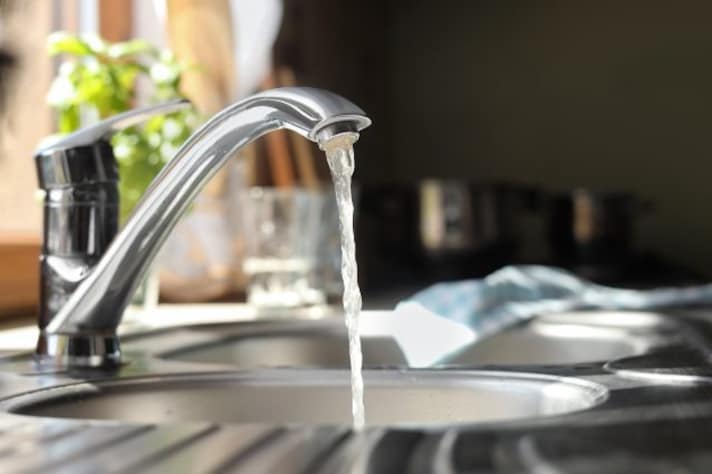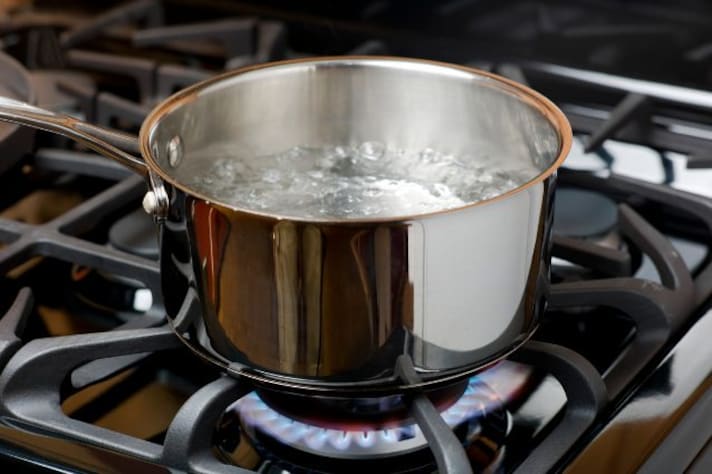Here’s Why You Should Never Cook With Hot Water From The Tap (Nor Drink It, For That Matter)
Cooking with hot tap water is unsafe due to potential contaminants like lead, metals, and harmful chemicals that leach more easily when heated. Bacteria can also thrive in warm water sitting in pipes. Experts recommend always starting with cold tap water, whether boiling for cooking or brewing drinks, to avoid health risks and ensure safety and flavor.

When you’re pressed for time, it might seem like a shortcut to use hot water straight from the tap for cooking. After all, it’s already hot—what’s the harm? But experts and scientists warn against this common practice, citing potential health risks and contamination concerns. From harmful chemicals to bacterial dangers, the hot truth is that tap water from the faucet isn’t as innocent as it seems when it comes to preparing food or drinks.
Lead and Other Contaminants
Hot water rushing through your pipes might carry more than just heat—it can also bring contaminants along for the ride. In many older homes, plumbing systems contain lead, which can leach into hot water more readily than cold. Even modern homes aren’t immune; other metals, such as copper and nickel, can also seep into the water when heated. Boiling water from the tap later won’t remove these metals, either—so starting with hot tap water might give your meal an unwelcome dose of heavy metals.
Beyond metals, hot tap water can dissolve other unwanted substances, including those introduced during water treatment. Some water systems use chemicals like chlorine or chloramine to disinfect, and these can react with heated water to form byproducts that are harmful in large amounts. Though these levels are regulated and typically safe for drinking cold water, heating accelerates chemical dissolution, increasing your exposure during cooking or brewing.

The Risk of Microbial Growth
Bacteria might be the last thing you’d associate with tap water, but stagnant water sitting in your home’s plumbing system can be a breeding ground for microorganisms like Legionella, which thrive in warm conditions. When you draw hot water from the tap, you might be unwittingly introducing bacteria that survived the heating process. Cooking at higher temperatures will usually kill them, but the risk is enough for experts to caution against using hot tap water directly.
Coffee or Tea? Don’t Use Hot Tap Water
You might think hot tap water is perfect for making a quick cup of coffee or tea, but it’s not a good idea. The same concerns about leaching metals and chemical byproducts apply here. Plus, coffee and tea require precise temperatures to taste their best—hot tap water often isn’t hot enough to properly brew them, compromising both safety and flavor. Instead, start with cold water and heat it using a kettle or coffee maker for a safe and tasty cup.
Is Boiling Lukewarm Tap Water Okay?
If you’re starting with cold or lukewarm tap water and then boiling it, you’re in safer territory. Boiling water kills most bacteria and neutralizes many chemical byproducts, making it generally safe for cooking and drinking. However, it’s still best to use filtered or purified water if your home has older pipes or questionable water quality, just to be sure.

It might feel like using hot tap water saves time, but cutting this corner can have consequences for your health and the taste of your food. Starting with cold water ensures that you avoid the contaminants and risks that come with heated water sitting in your pipes. Plus, the small extra step of heating water yourself ensures you’re in control of the cooking process from start to finish.
;Resize,width=767;)
;Resize,width=712;)

;Resize,width=712;)
